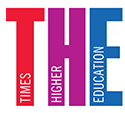Survey of academics in region finds widespread predictions of enrolment decline, budget cuts and concerns over lack of preparation for online education
The vast majority of universities in Latin America are predicting a drop in student enrolment this year in light of the coronavirus, while salary cuts are also expected, particularly at public institutions, according to a snapshot study.
Campuses across the region closed their facilities to students during the second half of March and have yet to re-open.
A survey of 88 senior academics and administrators at 52 institutions (28 public and 24 private) in Latin America found that just a third of respondents at private institutions and a fifth of respondents at public institutions anticipate offering face-to-face courses before the end of August. Half of respondents predicted that they would re-open in 2020, while half were uncertain whether this would be possible.
Meanwhile, 84 per cent anticipated a drop in the number of undergraduate students during the second half of 2020 compared with 2019, with half of those respondents estimating a 10 to 25 per cent decline. Eighty-one per cent predicted a decline in postgraduate enrolment, with more than two-fifths of them anticipating a 10 to 25 per cent decline.
None of the respondents at private universities, which are highly tuition dependent, expected to maintain current enrolment levels, according to the survey by the Center for Latin American and Latino Studies at the Washington DC-based American University.
Around two-thirds of the institutions surveyed host international students and, of those, 60 per cent of respondents at public universities and 30 per cent at private universities predicted enrolment to decline by more than 50 per cent.
The academic year varies across Latin America: in some regions it runs from March to December or February to November, while in others it is from September to June.
The study, conducted in May, also found that hiring freezes were widespread in universities across the region and a significant number of respondents were expecting pay cuts. Just one third of respondents at private institutions did not expect salary cuts, while only a quarter of those in public institutions were as confident.
Half of respondents indicated that their budgets had been impacted during the current fiscal year, and only a tenth anticipated stable financing for the next financial year, with most expecting cuts of 10 to 30 per cent.
Just over half of respondents at research universities envisioned either freezes or cuts to their budgets, while 10 per cent – all at public universities – expected funding to remain stable.
The majority of survey respondents were at institutions in Brazil, but 14 countries were included in total.
Nearly three-quarters of universities represented in the survey transitioned to some degree of online instruction, but half of respondents said that their institution was either not well-prepared or unprepared to make the switch.
Meanwhile, 90 per cent said they anticipated some students having difficulty accessing the internet, but fewer than half of institutions had taken steps to address the needs of students lacking adequate connectivity. In some cases, particularly at public universities, this digital divide was a motivating factor in the decision not to move instruction online, the study found.
Eric Hershberg, director of the Center for Latin American and Latino Studies, said that “while uncertainty is perhaps the prevailing sentiment, responses to our survey leave little doubt that Latin American universities are facing their greatest crisis in decades”.
He said that a quarter of the region’s higher education institutions had been created since the early 2000s and it now “appears implausible” that this pace of expansion will continue. Dr Hershberg added that he expects the responses to the survey “underestimate the depth of the dislocation that is in store”.
“Mass unemployment, business failures and soaring rates of poverty and indigence will reduce the flow of resources to universities through both government allocations and tuition-paying households,” he said.

0 Comments